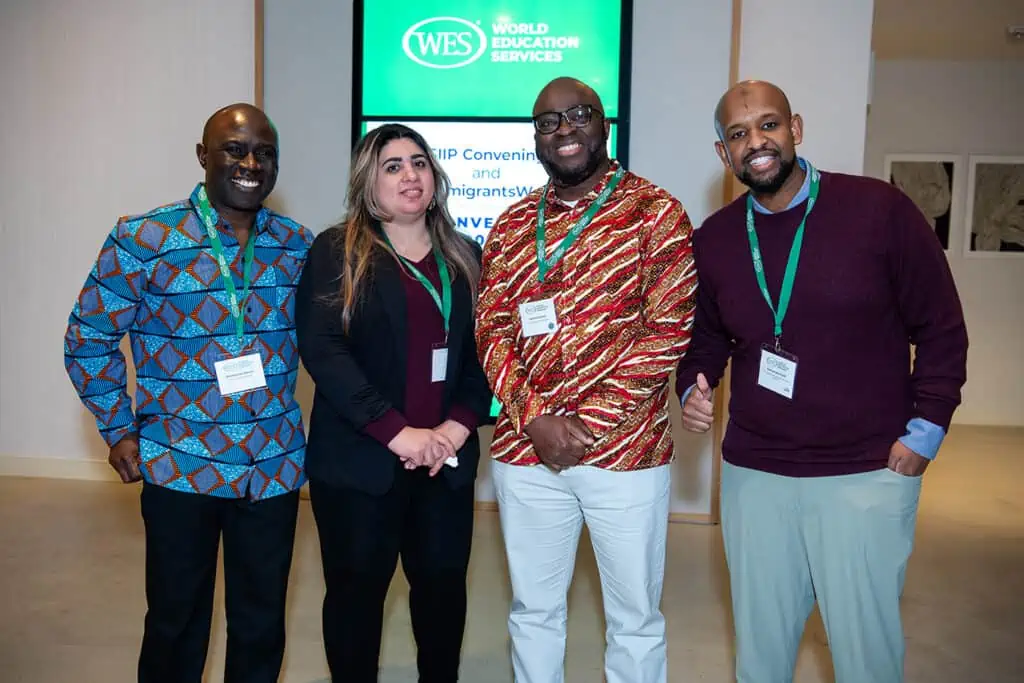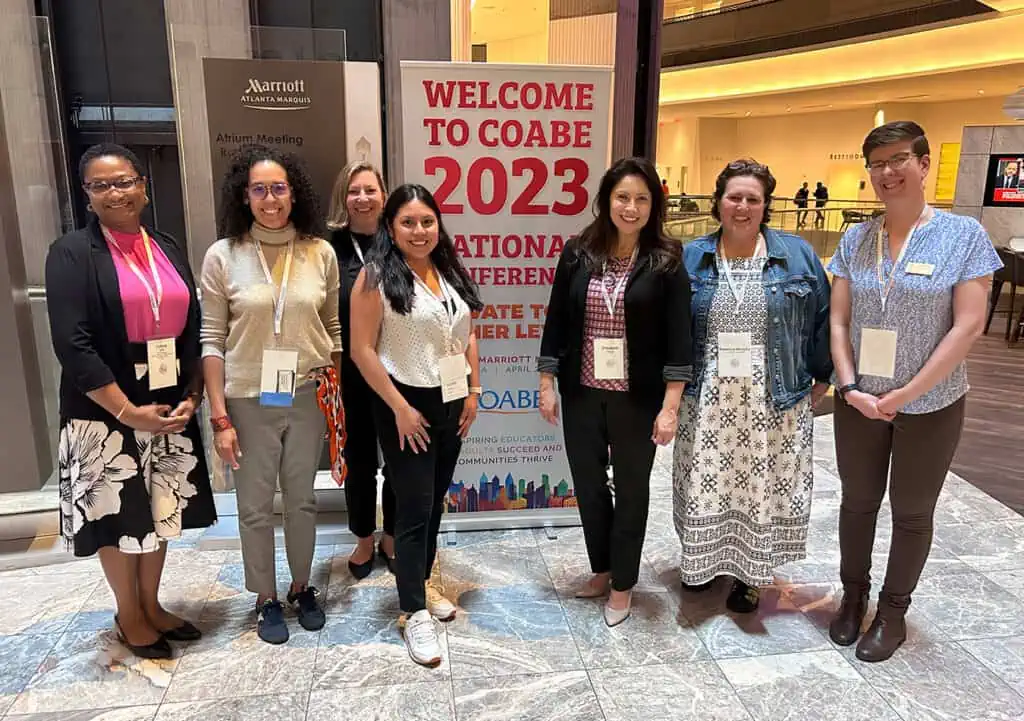Putting DEI in Action: A SIIP Training on Job Quality
Last month, members of the Skilled Immigrant Integration Program (SIIP) network participated on a panel that explored the importance of job quality in building a more equitable economy that is inclusive of immigrant and refugee workers. Led by Brooke Valle, a technical assistance provider for SIIP’s Workforce Board Partnerships cohort, the panel included Erica Bouris, director of economic empowerment at the International Rescue Committee (IRC) and Lei Ma, senior program associate with the World Education Services (WES) Mariam Assefa Fund.
The panelists provided an overview of frameworks for defining job quality, approaches to uplift immigrant voices in the development and implementation of employee benefits, ways to work with businesses that want to become choice employers, and suggestions on ways to engage with funders to support this work.
How Job Quality Connects with DEI
Job quality is not contingent on a single set of parameters. Rather, job quality relies on a combination of factors—ranging from wages to schedule flexibility to career advancement opportunities—that are unique to each employee and meet the needs of both workers and employers. The U.S. Department of Commerce points to diversity, equity, and inclusion (DEI) as a key driver of “high-quality jobs.” In fact, according to a 2021 CNBC/SurveyMonkey Workforce Survey, nearly 80 percent of workers want to work for a company that values DEI.
Yet employers do not always consider which aspects of a job may impact or prove attractive to immigrant and refugee employees, such as English language upskilling opportunities and routes to licensure. “Pathways to good jobs really only further DEI if they are open to all individuals,” said Brooke Valle, co-author of Results for America’s Job Quality Playbook and the Families and Workers Fund’s Job Quality Measurement Initiative report, Reimagining Job Quality Measurement. For employers seeking to promote a more equitable economy—and to attract and retain experienced workers—they must include immigrant and refugee voices in the development of the benefits and opportunities they offer their employees.
Erica Bouris, author of IRC’s recent report, Bringing Immigrant Workers into the Job Quality Conversation, elaborated on the findings of the report. Through interviews with a diverse group of immigrant and refugee workers in Florida, Georgia, and West Texas, the IRC found that employees consistently identified challenges related to traditional aspects of job quality such as wages, hours, and work conditions, as well as considerations like a desire for respect, fairness, and opportunity. Important to note is that workers who reported experiences of lower job quality connected these experiences with their intersectional identities as an immigrant, person of color, or English language learner. “The perception of what makes a good or fair job has a lot to do with whatever your last job was in your home country,” Erica noted, emphasizing that one’s understanding of job quality is both individual and culturally specific.
Including Immigrant and Refugee Workers in the Job Quality Conversation
Recognizing that culture, immigrant or refugee identity, and socio-economic factors influence workers’ assessment of job quality and attraction to certain job benefits, Erica suggested that employers and service providers develop programs that reflect the unique perspectives and needs of immigrant and refugee workers. “As a funder […] it’s important to talk about all of the extra costs that go into a program to support the success of immigrants and refugees, including childcare, transportation, interpretation, and other wraparound supports,” added Lei Ma.
The panel suggested that service providers and other supporting organizations engage employers in several ways, including:
- Focusing on creating accessible areas, such as providing opportunities for career advancement, helping employers address bias in their job posting and recruitment processes, and educating workers about their rights and ways to use their voice
- Providing information on how to become an “employer of choice” in the community
- Identifying the most effective ways to meet an employer’s needs, retention, productivity, growth, and customer satisfaction
- Tapping into a company’s DEI or environment, social, and governance (ESG) commitments
- Asking questions, gathering data, and outlining learning opportunities
Benefiting from the Collaborative SIIP Network
SIIP network members have access to quarterly trainings on a variety of relevant topics. Past trainings have included information on credential recognition and developing federal- and state-funded programming for internationally trained and educated immigrants and refugees. SIIP communities also benefit from technical assistance offered via national workforce experts and WES Global Talent Bridge staff, opportunities to exchange ideas and provide updates on state and local initiatives, access to resources on career pathways, employer engagement, and data and research analysis, and participation in a national in-person convening of the network’s members.
At the completion of each cohort, SIIP members join the SIIP Alumni Network, granting them continued access to trainings and the yearly convening, as well as quarterly calls to hear from experts in the field and share common challenges and best practices. SIIP Alumni Network members can apply to the SIIP Demonstration Opportunity, which provides technical aid and financial assistance to support innovative approaches to promoting immigrant and refugee workforce inclusion.
Joining SIIP’s Sixth Cohort
Applications for the next SIIP cohort will open midsummer, with the program year beginning September 2023. Communities interested in joining the SIIP 2023-2024 cohort can sign up to learn more about the Request for Proposals and about office hours held by the WES Global Talent Bridge State and Local Initiatives team.
Find out more about SIIP and related state and local initiatives by visiting the SIIP webpage.





